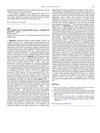signaling protein that, when suppressed, may grow hair by reducing inflammation and stem cell loss
a signaling molecule from dermal papilla cells being actively researched
extract, clone, and reinsert your own hair cells
compound that activates Wnt/β-catenin to promote hair regrowth and create new hair follicles

